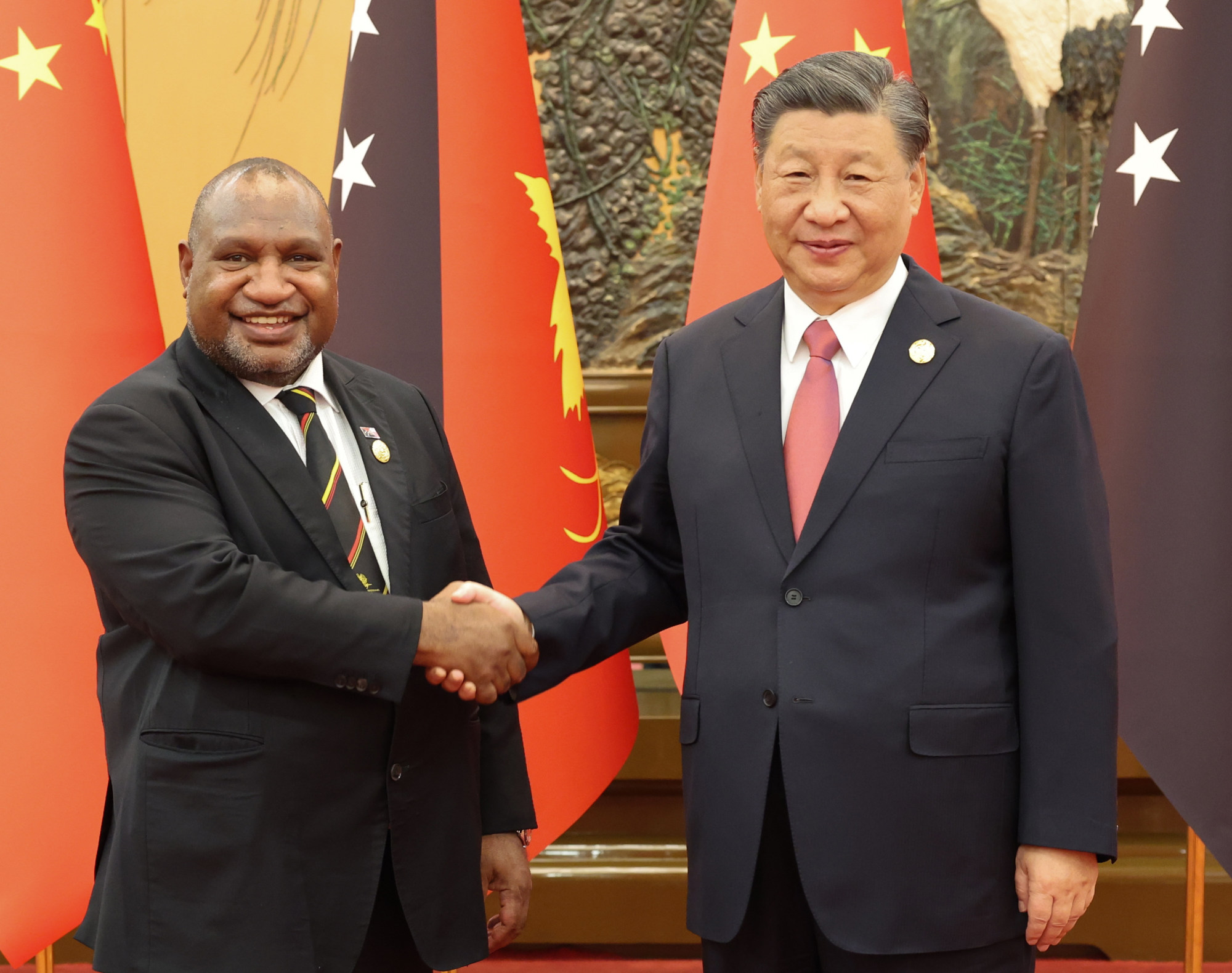
PNG ‘keeps’ China for the economy, US for external defence, Australia for internal security: PM
- Papua New Guinea Prime Minister James Marape on Monday said ‘there was no conversation on security’ when he visited Beijing earlier this year
- He added that his country was ‘in the oil and gas business’ and he did not want to be lectured on climate change by rich nations
Marape said PNG had been transparent, and when he visited Beijing this year with his ministers “there was no conversation on security”.
“We keep them in the space of the economy, we went with traditional security partners for security,” he told a resources-investment conference in Sydney.

“These two are complementary. External security with the USA, and internal security with Australia,” he said.
Solomon Islands hosts China-funded Pacific Games amid big-power rivalry
Marape said improving security was important for foreign investors.
PNG’s exports are dominated by resources and energy, including liquefied natural gas.
Marape said he did not want to be lectured on climate change, and nations with the biggest carbon footprints and affluent lifestyles needed to take the lead in curbing emissions.
“My country is in the oil and gas business. Lucky for me we have the big forest and ocean to offset,” he said.
With 70 per cent of PNG forested, Marape said it was a “carbon negative” country and offered a green label to energy investors.
PNG stands as buffer to greater Asia and linking to the Pacific
A senior executive of PNG’s state-owned petroleum company said on Monday it was in advanced talks with Chinese banks to help fund its stakes in two massive liquefied natural gas (LNG) projects in the country.
Kumul Petroleum is holding talks with banks in the US, Europe and Australia but the talks with China were “mature”, its managing director Wapu Sonk said at the Papua New Guinea Resources and Energy conference in Sydney.
“Most of the funding discussions are really with Chinese backed banks because they have a different view on ESG (environmental, social and corporate governance),” he said. “It’s progressed to a point where it is mature.”
US-China’s Pacific power play to persist after Australia-Papua New Guinea pact
In a separate speech to the Lowy Institute think tank on Monday, Marape said the greatest challenge facing humanity other than climate change is poverty, and economic investment was “more powerful than just security”.
“The gap in poverty must be filled – the West cannot be ignorant to this,” he said, adding that he believed the next 100 years would be the Asian century.
He said PNG’s security interests were different to smaller Pacific nations because of its geographic position.
“PNG stands as buffer to greater Asia and linking to the Pacific,” he said.

